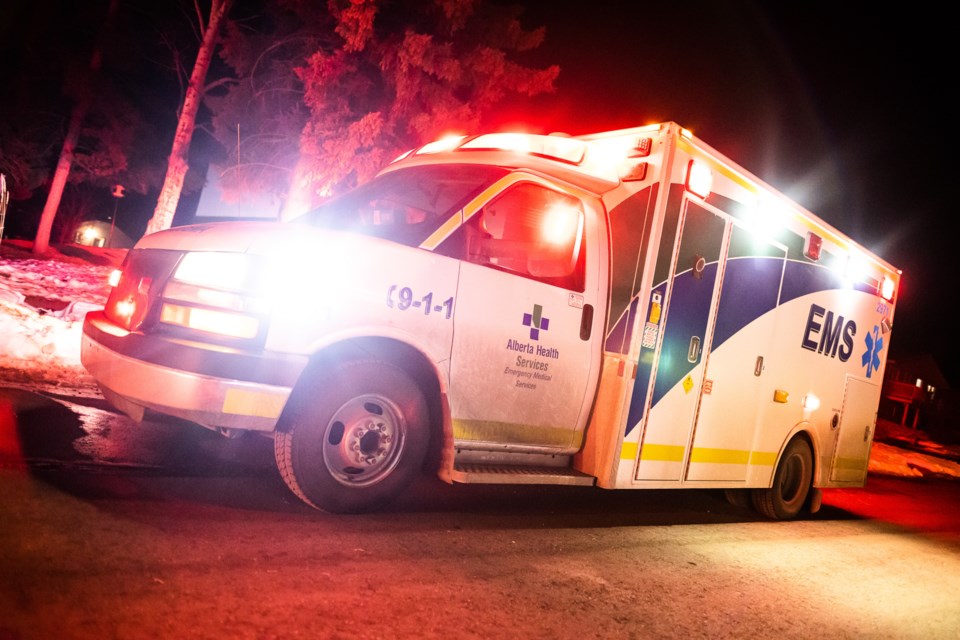Rural communities are increasingly finding themselves without an emergency department to turn to, and their absence is piling work on already stressed allied health professionals.
In 2023, 26 emergency departments in rural Alberta were closed for a combined 38,000 hours, a recent report shows. The top reason for ERs having to temporarily shut down, by a large margin, was because doctors or other staff were unavailable. More than half of the hospitals recorded closures of 20 days or longer.
For EMS crews, the loss of the local ER often means more patient transfers and longer turnaround times for calls.
"It puts more pressure on EMS, obviously. We have to go to the next closest hospital or suitable hospital if the local hospitals are closed. So, it adds time for units being out of community longer," said Paul Kennedy, executive director of operations for EMS with Associated Ambulance.
Most rural EMS crews work on a core-flex schedule, which requires paramedics to be on-call for up to 96 hours straight. According to the Alberta Paramedic Association, approximately 190 ambulances in Alberta use this staffing model.
After working 14 hours or more, paramedics are "timed-out" and taken out of service, which is increasingly likely alongside hospital service disruptions.
"We seem to have seen an increase in hospital closures in rural Alberta over the last year," Kennedy said. "Definitely more than what it used to be."
Some of the closures were also more extensive last year than normal, such as those at the ER in Boyle, he said. The Boyle emergency department was unavailable from 9 p.m. to 9 a.m. daily in 2023, according to data from Alberta Health Services.
Burden of ER closures spreads
The Government of Alberta has introduced several measures to try and improve conditions in rural hospitals, including incentives for physicians to practise in rural areas and plans to allow nurse practitioners to open their own primary care clinics. While these approaches may help keep ERs open, they also tend to highlight only specific pieces of the health care system, and overlook holistic problems, said Mike Parker, president of the Health Sciences Association of Alberta.
"They are not focusing on the entire health care system. And not recognizing that without the 240 specific disciplines that create health care, you don't have health care," Parker said.
X-ray and lab technicians are some of the essential components of a community hospital, Parker said, without whom physicians can't get the information they need to make a diagnosis.
"When you don't have (staff) — maybe it's a physician, maybe it's nurse capacity, maybe it's the X-ray and lab and all of the other components of that emergency room that don't exist because we don't have the people — now you're left relying on, hopefully, a 911 system that actually has paramedics in your community, or at least in the area."
'Continually burning out' existing staff
In December, Alberta Health Services sent out an emailed memorandum to paramedics "urgently seeking staff" for upcoming shifts in the North Zone. These staffing shortfalls are being felt across health disciplines, and thousands of health care positions within AHS remain unfilled, Parker said.
"These are desperate times," he said. "And specifically under AHS. They are not the preferred employer and people are taking this hard-earned education, their professionalism and their expertise, and they're exiting health care altogether."
Along with hiring the necessary people to fill vacant positions, more effort needs to be made to improve working conditions for existing staff, and stop "continually burning out the ones we have."
"It's about retaining the folks we have here today. And building structures that train Albertans to serve Albertans as health care professionals in a job that is respected, to take care of the worker so that they can take care of the patient."




